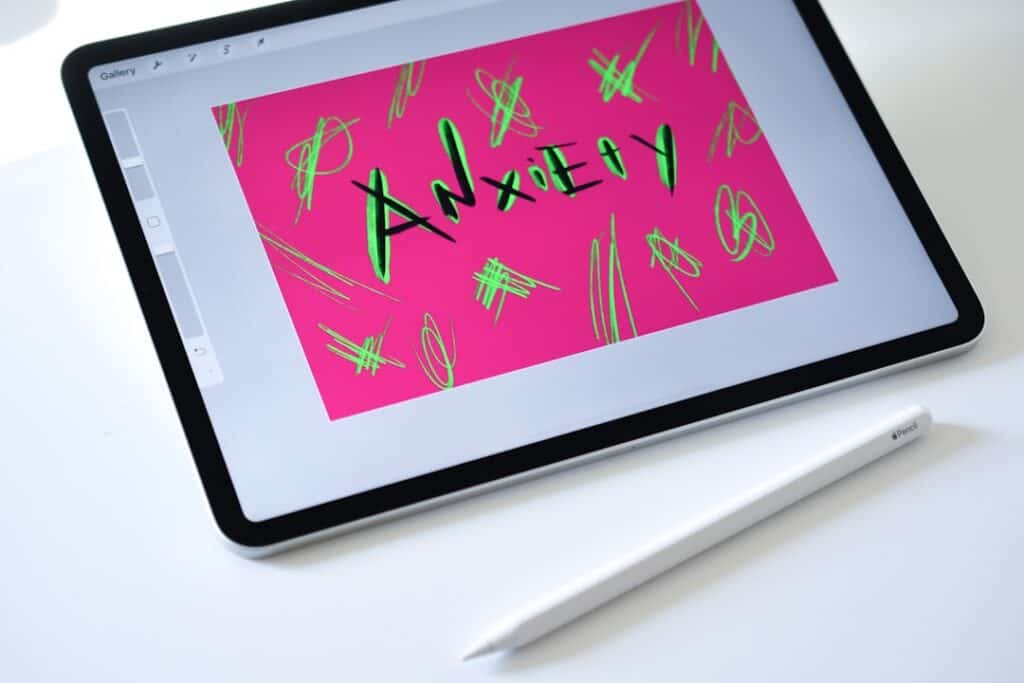Anxiety attacks, also known as panic attacks, can be a debilitating experience for those who suffer from them. These episodes of intense fear and distress can come on suddenly and without warning, making it difficult for individuals to go about their daily lives. Seeking help for mental health is crucial in managing anxiety attacks and improving overall wellbeing. In this article, we will explore the causes and symptoms of anxiety attacks, share a personal account of someone who has experienced them, discuss the stigma surrounding mental health, provide coping strategies for managing anxiety attacks, and offer resources for seeking professional help.
Key Takeaways
- Anxiety attacks can be overwhelming and debilitating, but seeking help is important.
- Personal accounts of mental health struggles can help reduce stigma and encourage seeking help.
- Coping strategies such as breathing exercises, mindfulness, exercise, healthy diet, and sleep habits can be effective in managing anxiety attacks.
- Seeking professional help for mental health is important and resources are available in Ireland.
- Prioritizing wellbeing and mental health is crucial for overall health and happiness.
Understanding Anxiety Attacks
Anxiety attacks are characterized by sudden and overwhelming feelings of fear and panic. Symptoms can include rapid heartbeat, shortness of breath, chest pain, dizziness, trembling or shaking, sweating, and a sense of impending doom. These attacks can be triggered by specific situations or can occur seemingly out of nowhere. The causes of anxiety attacks are multifaceted and can include genetic factors, environmental influences, and life experiences.
Genetics play a role in the development of anxiety disorders. Research has shown that individuals with a family history of anxiety or other mental health disorders are more likely to experience anxiety attacks themselves. Additionally, certain environmental factors can contribute to the development of anxiety attacks. High-stress environments, traumatic events, and chronic illness can all increase the likelihood of experiencing anxiety attacks. Finally, life experiences such as childhood trauma or abuse can also contribute to the development of anxiety disorders.
The Valley of the Mad: A Personal Account
I remember the first time I experienced an anxiety attack vividly. It was a normal day at work when suddenly I felt my heart racing and my chest tightening. I couldn’t catch my breath and felt like I was going to pass out. The fear was overwhelming, and I had no idea what was happening to me. This experience repeated itself several times over the next few weeks, and I soon realized that I was experiencing anxiety attacks.
These attacks had a profound impact on my daily life. I became afraid to leave my house, fearing that an attack would strike at any moment. Simple tasks like grocery shopping or going to social events became daunting challenges. I felt isolated and alone, as if no one could understand what I was going through. It wasn’t until I sought help from a therapist that I began to understand my anxiety and develop strategies for managing it.
Seeking Help for Mental Health
| Metrics | Values |
|---|---|
| Percentage of people who seek help for mental health issues | 41% |
| Percentage of people who do not seek help for mental health issues | 59% |
| Reasons for not seeking help |
|
| Percentage of people who believe seeking help for mental health issues is a sign of weakness | 25% |
| Percentage of people who believe seeking help for mental health issues is a sign of strength | 75% |
Unfortunately, there is still a significant stigma surrounding mental health, which can prevent individuals from seeking the help they need. Many people feel ashamed or embarrassed about their struggles and fear judgment from others. However, it is important to remember that mental health is just as important as physical health and seeking help is a sign of strength, not weakness.
There are many resources available for those seeking help for mental health. Therapy is a common and effective treatment option for anxiety disorders. A therapist can provide a safe space to explore your feelings and develop coping strategies for managing anxiety attacks. Support groups can also be beneficial, as they provide a sense of community and understanding. Additionally, there are hotlines available for immediate support during a crisis.
Coping Strategies for Anxiety Attacks
While seeking professional help is crucial in managing anxiety attacks, there are also coping strategies that individuals can practice on their own. It is important to note that different strategies work for different people, so it may take some experimentation to find what works best for you. Here are some coping strategies that have been found to be effective in managing anxiety attacks:
1. Breathing Exercises: Deep breathing exercises can help calm the body and mind during an anxiety attack. One simple technique is called diaphragmatic breathing. To practice this technique, sit or lie down in a comfortable position and place one hand on your chest and the other on your abdomen. Take a slow, deep breath in through your nose, allowing your abdomen to rise as you fill your lungs with air. Exhale slowly through your mouth, allowing your abdomen to fall. Repeat this process several times until you feel more relaxed.
2. Mindfulness and Meditation: Mindfulness and meditation can help individuals become more aware of their thoughts and feelings, allowing them to observe them without judgment. This can be particularly helpful during an anxiety attack, as it can help shift the focus away from the fear and panic. Incorporating mindfulness and meditation into daily life can be as simple as taking a few minutes each day to sit quietly and focus on your breath or engaging in activities that promote mindfulness, such as yoga or walking in nature.
3. Exercise and Physical Activity: Regular exercise has been shown to reduce symptoms of anxiety and improve overall mental health. Engaging in physical activity releases endorphins, which are natural mood boosters. Exercise can also help distract the mind from anxious thoughts and provide a sense of accomplishment. Finding an activity that you enjoy, whether it’s going for a run, taking a dance class, or playing a sport, can make it easier to incorporate exercise into your daily routine.
Tip 1: Breathing Exercises

Deep breathing exercises are a simple yet effective tool for managing anxiety attacks. When we are anxious, our breathing tends to become shallow and rapid, which can exacerbate feelings of panic. Deep breathing exercises help slow down the breath and activate the body’s relaxation response.
One technique that is commonly used is called diaphragmatic breathing. To practice this technique, find a comfortable position either sitting or lying down. Place one hand on your chest and the other on your abdomen. Take a slow, deep breath in through your nose, allowing your abdomen to rise as you fill your lungs with air. Exhale slowly through your mouth, allowing your abdomen to fall. Repeat this process several times until you feel more relaxed.
Deep breathing exercises can be done anywhere and at any time, making them a convenient tool for managing anxiety attacks. By focusing on the breath, individuals can shift their attention away from the fear and panic and bring themselves back to the present moment.
Tip 2: Mindfulness and Meditation
Mindfulness and meditation are practices that involve bringing one’s attention to the present moment without judgment. These practices have been shown to reduce symptoms of anxiety and improve overall mental health.
Incorporating mindfulness and meditation into daily life can be as simple as taking a few minutes each day to sit quietly and focus on your breath. Find a quiet space where you won’t be disturbed and sit in a comfortable position. Close your eyes and take a few deep breaths, allowing your body to relax. Bring your attention to your breath, noticing the sensation of the breath as it enters and leaves your body. If your mind begins to wander, gently bring it back to the breath without judgment.
In addition to formal meditation practices, there are many ways to incorporate mindfulness into daily activities. For example, when eating a meal, take the time to savor each bite and notice the flavors and textures. When going for a walk, pay attention to the sights, sounds, and smells around you. By bringing awareness to the present moment, individuals can reduce anxiety and increase feelings of calm.
Tip 3: Exercise and Physical Activity
Regular exercise has been shown to reduce symptoms of anxiety and improve overall mental health. Engaging in physical activity releases endorphins, which are natural mood boosters. Exercise can also help distract the mind from anxious thoughts and provide a sense of accomplishment.
Finding an activity that you enjoy is key to incorporating exercise into your daily routine. Whether it’s going for a run, taking a dance class, or playing a sport, finding something that you look forward to can make it easier to stick with an exercise routine. It’s also important to start slowly and gradually increase the intensity and duration of your workouts. This will help prevent injury and make exercise more enjoyable.
In addition to structured exercise, incorporating physical activity into your daily life can also be beneficial. Taking the stairs instead of the elevator, going for a walk during your lunch break, or doing household chores can all contribute to your overall activity level. The key is to find ways to move your body that you enjoy and that fit into your daily routine.
Tip 4: Healthy Diet and Sleep Habits
A healthy diet and good sleep habits are essential for managing anxiety. Certain foods and drinks can exacerbate anxiety symptoms, while others can help promote feelings of calm. Similarly, getting enough sleep is crucial for overall mental health and wellbeing.
When it comes to diet, it’s important to avoid or limit caffeine, as it can increase feelings of anxiety and interfere with sleep. Alcohol and nicotine should also be consumed in moderation, as they can have a negative impact on mental health. Instead, focus on eating a balanced diet that includes plenty of fruits, vegetables, whole grains, lean proteins, and healthy fats. These foods provide the nutrients necessary for optimal brain function and can help stabilize mood.
In terms of sleep, it’s important to establish a regular sleep schedule and create a relaxing bedtime routine. This means going to bed and waking up at the same time each day, even on weekends. It’s also helpful to create a calming environment in your bedroom by keeping it cool, dark, and quiet. Avoiding screens before bed and engaging in relaxing activities such as reading or taking a warm bath can also promote better sleep.
Tip 5: Seeking Professional Help for Men’s Mental Health in Ireland
Men face unique challenges when it comes to seeking help for mental health issues. Societal expectations of masculinity often discourage men from expressing their emotions or seeking help, leading to a higher likelihood of suffering in silence. However, it is important for men to prioritize their mental health and seek help when needed.
In Ireland, there are resources available specifically for men’s mental health. Organizations such as Men’s Health Forum in Ireland and Men’s Aid provide support and information for men struggling with mental health issues. These organizations offer helplines, support groups, and online resources to help men navigate their mental health journey.
It is also important for men to reach out to healthcare professionals, such as therapists or counselors, who can provide individualized support and treatment options. Seeking help is not a sign of weakness, but rather a courageous step towards improving one’s mental wellbeing.
Prioritizing Wellbeing and Mental Health
In conclusion, anxiety attacks can be a challenging and overwhelming experience. However, seeking help for mental health is crucial in managing anxiety attacks and improving overall wellbeing. It is important to understand the causes and symptoms of anxiety attacks, as well as the stigma surrounding mental health. Coping strategies such as breathing exercises, mindfulness and meditation, exercise, and maintaining a healthy diet and sleep habits can all be effective in managing anxiety attacks. Additionally, there are resources available for those seeking professional help, including therapy, support groups, and hotlines. By prioritizing wellbeing and mental health, individuals can take control of their anxiety and live a more fulfilling life.
If you’re looking for more resources to support your mental health, you might find this article on Valley of the Mad helpful. It explores the topic of explaining suicide to children, providing guidance and insights for parents or caregivers who may be facing this difficult conversation. Understanding how to approach such a sensitive topic can be crucial in supporting children’s emotional well-being. Check out the article here and gain valuable knowledge on navigating this challenging subject.
FAQs
What is an anxiety attack?
An anxiety attack is a sudden onset of intense fear or discomfort that can cause physical symptoms such as rapid heartbeat, sweating, and shortness of breath.
What are the common triggers of an anxiety attack?
Common triggers of an anxiety attack include stress, trauma, phobias, and certain medical conditions.
What are some tips for managing an anxiety attack?
Some tips for managing an anxiety attack include deep breathing, practicing mindfulness, engaging in physical activity, and seeking professional help.
How can deep breathing help during an anxiety attack?
Deep breathing can help during an anxiety attack by slowing down the heart rate and promoting relaxation.
What is mindfulness and how can it help during an anxiety attack?
Mindfulness is the practice of being present in the moment and focusing on the present experience. It can help during an anxiety attack by reducing the intensity of the symptoms and promoting a sense of calm.
When should I seek professional help for my anxiety attacks?
You should seek professional help for your anxiety attacks if they are interfering with your daily life, causing significant distress, or if you are experiencing other mental health symptoms such as depression or suicidal thoughts.



